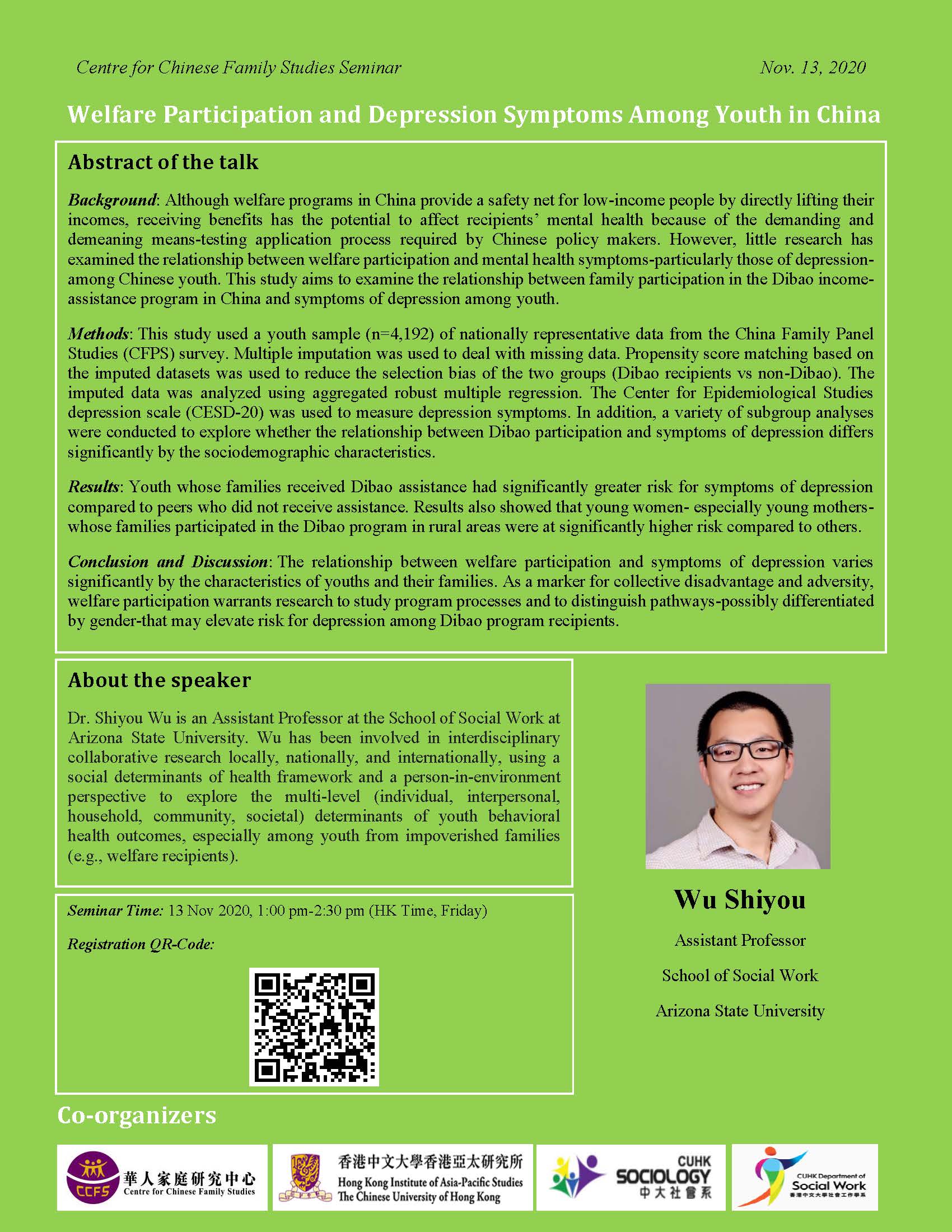
Assistant Professor, Arizona State University
sociology@cuhk.edu.hk
Abstract of the talk
Background: Although welfare programs in China provide a safety net for low-income people by directly lifting their incomes, receiving benefits has the potential to affect recipients’ mental health because of the demanding and demeaning means-testing application process required by Chinese policy makers. However, little research has
examined the relationship between welfare participation and mental health symptoms-particularly those of depression-among Chinese youth. This study aims to examine the relationship between family participation in the Dibao income-assistance program in China and symptoms of depression among youth.
Methods: This study used a youth sample (n=4,192) of nationally representative data from the China Family Panel Studies (CFPS) survey. Multiple imputation was used to deal with missing data. Propensity score matching based on the imputed datasets was used to reduce the selection bias of the two groups (Dibao recipients vs non-Dibao). The imputed data was analyzed using aggregated robust multiple regression. The Center for Epidemiological Studies depression scale (CESD-20) was used to measure depression symptoms. In addition, a variety of subgroup analyses were conducted to explore whether the relationship between Dibao participation and symptoms of depression differs significantly by the sociodemographic characteristics.
Results: Youth whose families received Dibao assistance had significantly greater risk for symptoms of depression compared to peers who did not receive assistance. Results also showed that young women- especially young mothers-whose families participated in the Dibao program in rural areas were at significantly higher risk compared to others.
Conclusion and Discussion: The relationship between welfare participation and symptoms of depression varies significantly by the characteristics of youths and their families. As a marker for collective disadvantage and adversity, welfare participation warrants research to study program processes and to distinguish pathways-possibly differentiated by gender-that may elevate risk for depression among Dibao program recipients.
About the speaker
Dr. Shiyou Wu is an Assistant Professor at the School of Social Work at Arizona State University. Wu has been involved in interdisciplinary collaborative research locally, nationally, and internationally, using a social determinants of health framework and a person-in-environment perspective to explore the multi-level (individual, interpersonal, household, community, societal) determinants of youth behavioral health outcomes, especially among youth from impoverished families (e.g., welfare recipients).

